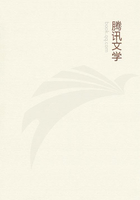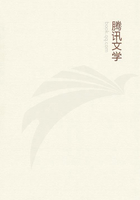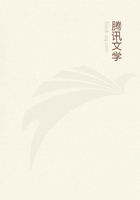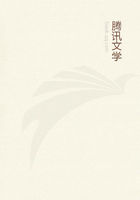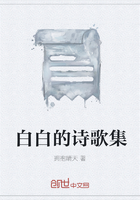the gold gulden was regarded as an imperial coin; the imperial currency ordinance of 1521 was a plan pressed upon the Council of Regency (Reichsregiment) by the mint officials of western Germany. But in spite of later imperial ordinances, and the attempt to exercise control over the currency of the several Estates by means of the Circles (kreise), the empire was unable to bring about a real unity. Here, also, the victory belonged to the territories. The powerful and energetic territorial governments were able, step by step, to deprive the towns of their rights of coinage, to make the mint-masters once more the officials of the prince of the land, and to introduce a uniform system for at least a few hundred square miles. Upon the extent to which they succeeded depended in large measure the trade and prosperity of the several lands in the sixteenth century. Those princes who happened to possess rich silver mines, like the Saxon rulers, had the easiest task; and they naturally showed most antipathy towards the attempts to bring about a uniform currency for the empire or the several circles. The Hohenzollern princes seem to have resumed the right of coinage, and to have coined for themselves in the Mark of Brandenburg, at any rate from 1480 or 1490 onward; while in the lands of the Teutonic Order the towns had never completely and permanently secured the right. It is mentioned as an exception in the case of Berlin, that it struck some small coins on its own account from 1540 to 1542, and again, but for the last time, in 1621. In Pomerania, Bogeslaw disputed the privilege of Stralsund in 1504; and towards 1560 the town had lost the right. Stettin, in 1530, had to recognise that, even in the time of the father of the duke then ruling, the prince had refused, for weighty reasons, to allow the town to have its own currency.
The decisive thing was the exercise of the princely right of coinage by the territorial governments themselves. Mere ordinances,- such as those set forth as early as the reign of Frederick II of Brandenburg, that Rhenish gold gulden were to be taken at such and such a rate, but that, as a rule, people were to reckon in Bohemian groschen, - were useless. The essential matter was to replace municipal and foreign coins by those of the prince in sufficient quantity. Here, also, it appears to have been Joachim I who opened for Brandenburg the way to an energetic policy in the matter. He not only had gold gulden struck in Berlin, but also silver coins, both heavy and light, at seven different mints. Negotiations with Saxony for a uniform currency failed in their purpose. The standard in the Mark was lighter.
The Brandenburg currency edict of 1556 did, indeed, create a new coinage with new subdivisions, which harmonised with the imperial currency. But the idea of a separate territorial currency system was still dominant and so remained. Only certain foreign coins were admitted, and these only at the value set upon them by the territorial authority. The other territorial and town coins were forbidden. It was from time to time strictly ordered that the coins that had been recently forbidden should be disused at a certain date, and exchanged at the mint. The prohibition of export plays a smaller part in Brandenburg than in Saxony;probably because, as the coins were lighter, there was less temptation to send them out of the land. But penalties were frequently (1590, 1598) threatened against Jews and Scots who bought up the old silver and exported it.
The earlier universal practice of the towns, with regard to the prohibition of foreign currency, or the exportation of their own, the right of preempting old gold and silver, and similar regulations, was now, naturally enough, copied by the territorial governments. Whether and how far they succeeded with all their penal mandates, depended, of course, on the movements of trade, and the relation of the nominal value of the several coins to the estimate placed upon them in neighbouring lands and in foreign trade. But undoubtedly it was the prevalent idea, with rulers and ruled alike, that it was the duty of the government to provide the land with a good and uniform coinage, and to close it against the outside world in this respect, even if not in the matter of trade.
This currency system for a whole principality was, then, the institution which, - together with the financial system for a whole principality to be next described, most distinctly drew the circle which bound the territory into one economic body.(28*)As to the finances, here the participation of the Estates in their control tended towards centralisation, in even greater measure than the activity of the princes and their officials. Yet even this initiative of the court is not to be undervalued. Where thrifty princes, carrying on a paternal rule, duly regulated and extended the official body (as in Saxony the Elector Augustus, in Brandenburg the Margrave John), this activity was of no slight importance for the welfare of the land, and the consolidation of its economic forces. Many of the princes of the time were interested in technical improvements and inventions, had their own laboratories and alchemists, sought to establish mines, and erected mills, glassworks, and saltworks; here and there magnificent castles and fortresses were built with the aid of Italian architects and foreign artists and artisans. This put the household of the prince and the service of the prince, with its increasing number of officials, in the centre of the economic life of the territory more distinctly that it had ever been before, and left behind a distinct influence for generations.
Thus the Margrave Hans, in his will, prides himself not unjustly upon the fact that during his reign both the country and the people had waxed great, and that they had never stood so high before in revenue and resources.

